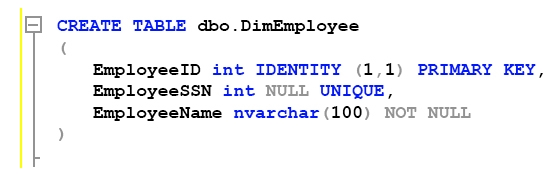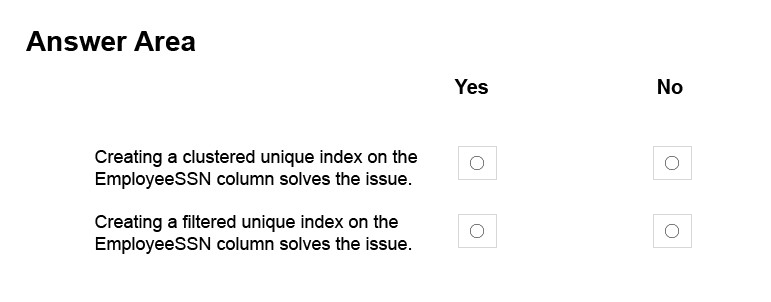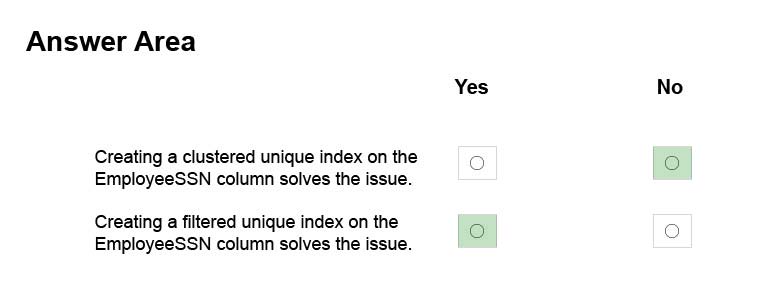

HOTSPOT -
You manage a data warehouse in a Microsoft SQL Server instance. Company employee information is imported from the human resources system to a table named Employee in the data warehouse instance. The Employee table was created by running the query shown in the Employee Schema exhibit. (Click the
Exhibit button.)
The personal identification number is stored in a column named EmployeeSSN. All values in the EmployeeSSN column must be unique.
When importing employee data, you receive the error message shown in the SQL Error exhibit. (Click the Exhibit button.).
You determine that the Transact-SQL statement shown in the Data Load exhibit is the cause of the error. (Click the Exhibit button.)
You remove the constraint on the EmployeeSSN column. You need to ensure that values in the EmployeeSSN column are unique.
For each of the following statements, select Yes if the statement is true. Otherwise, select No.
NOTE: Each correct selection is worth one point.
Hot Area:

JHJHJHJHJ
4 years, 5 months agoRidaZaki
4 years, 7 months agoRidaZaki
4 years, 7 months agoAnette
4 years, 10 months agolahmed
4 years, 10 months agoAnette
4 years, 10 months agoSlava_bcd81
4 years, 8 months agoHoglet
4 years, 6 months ago